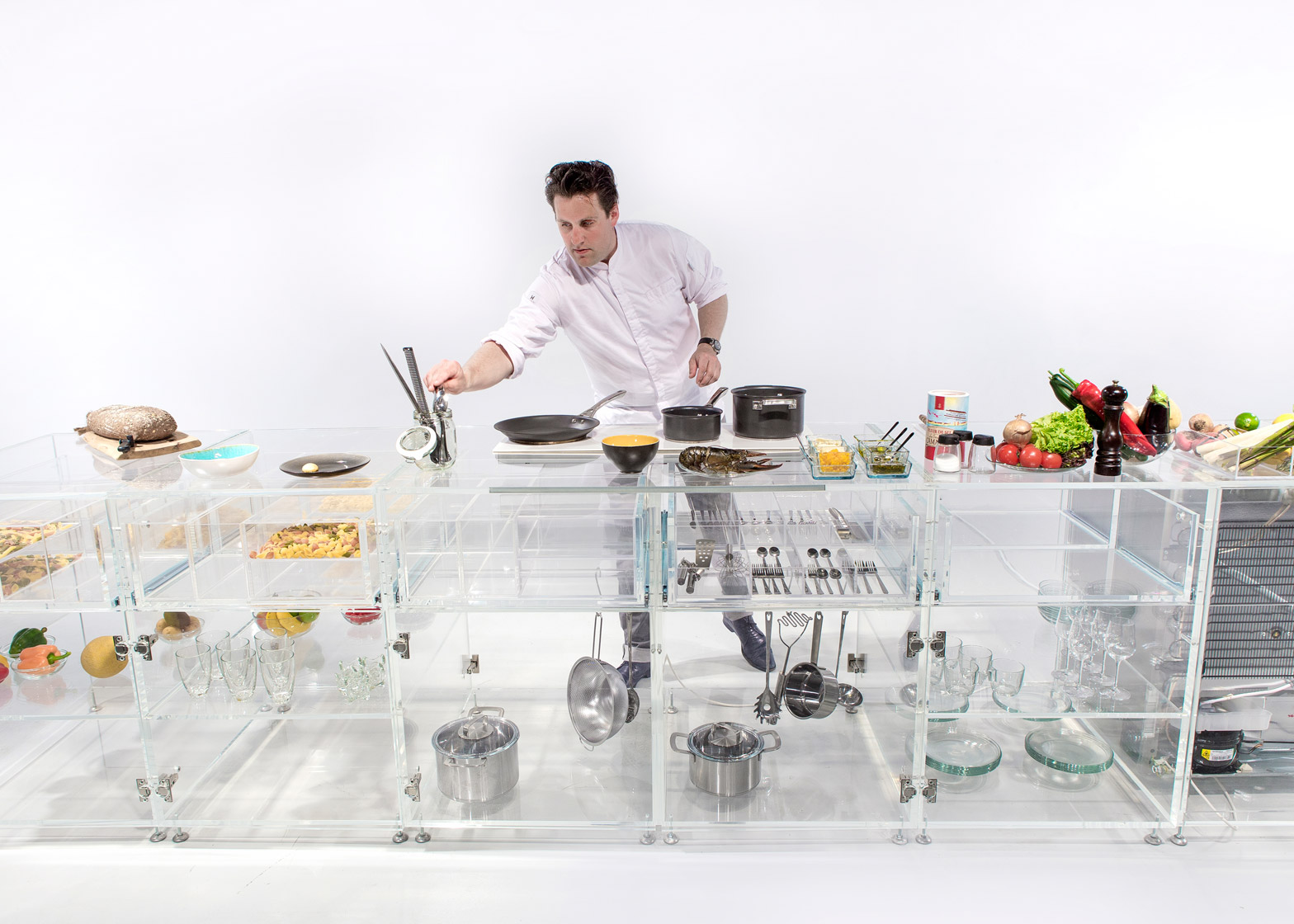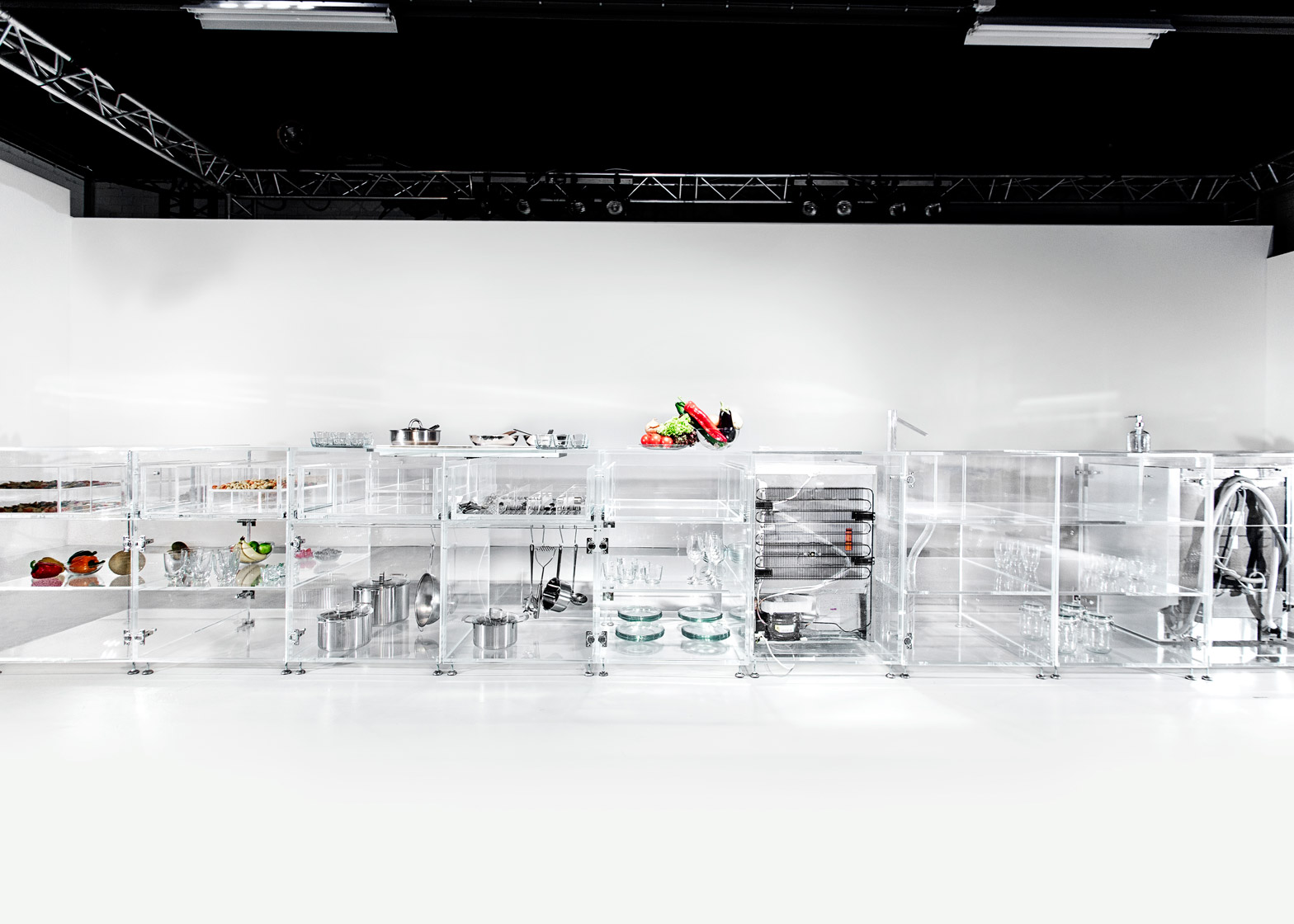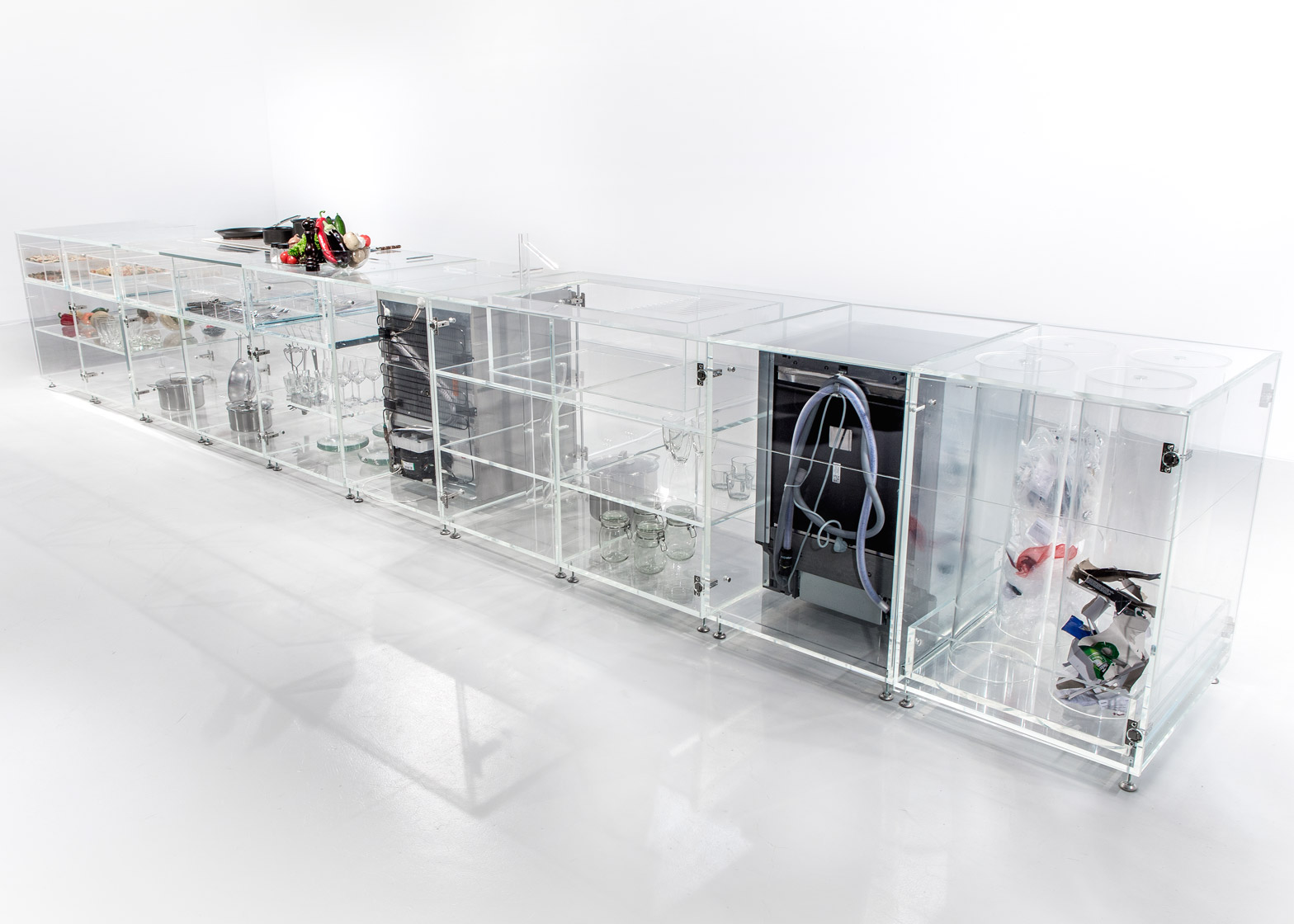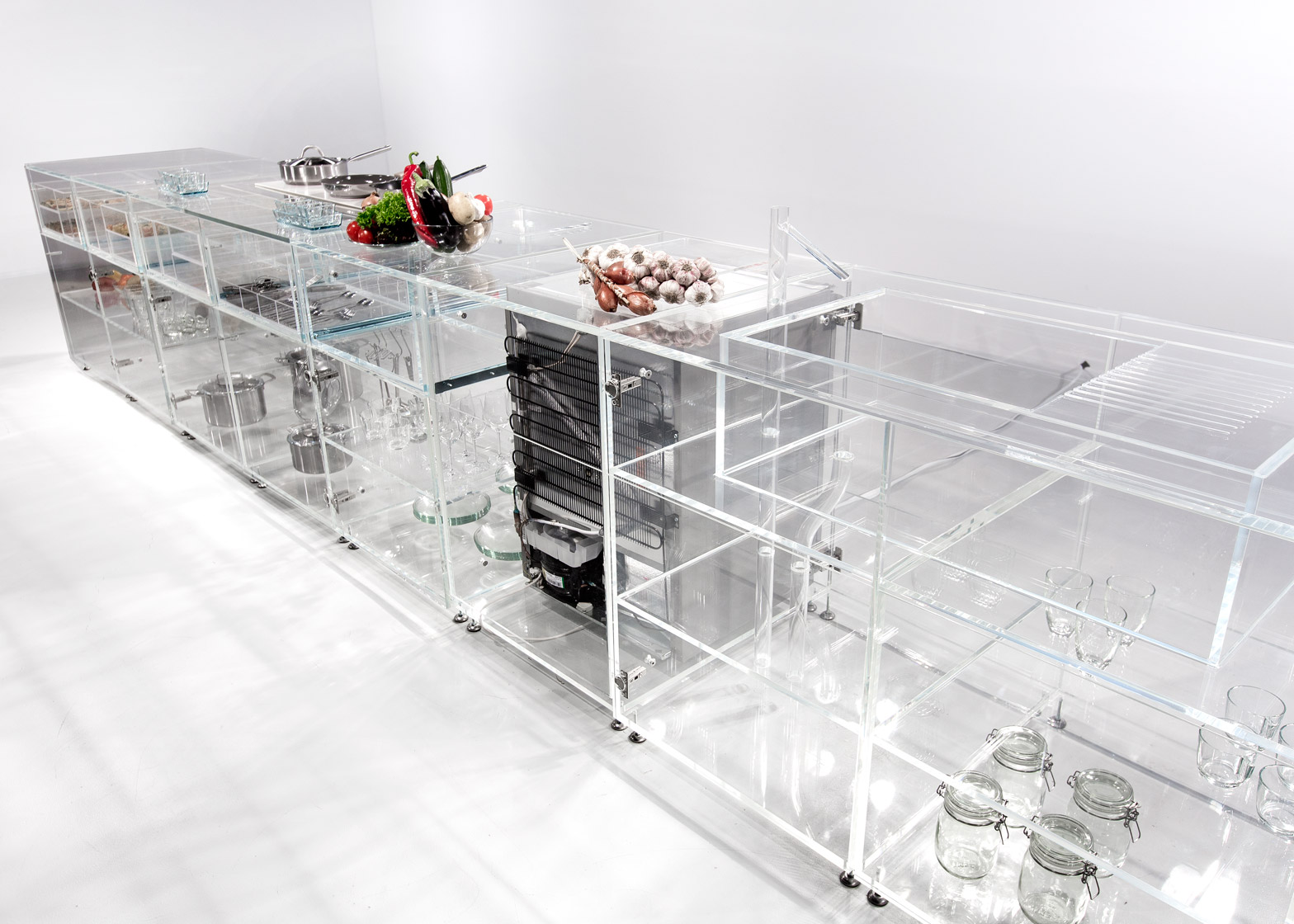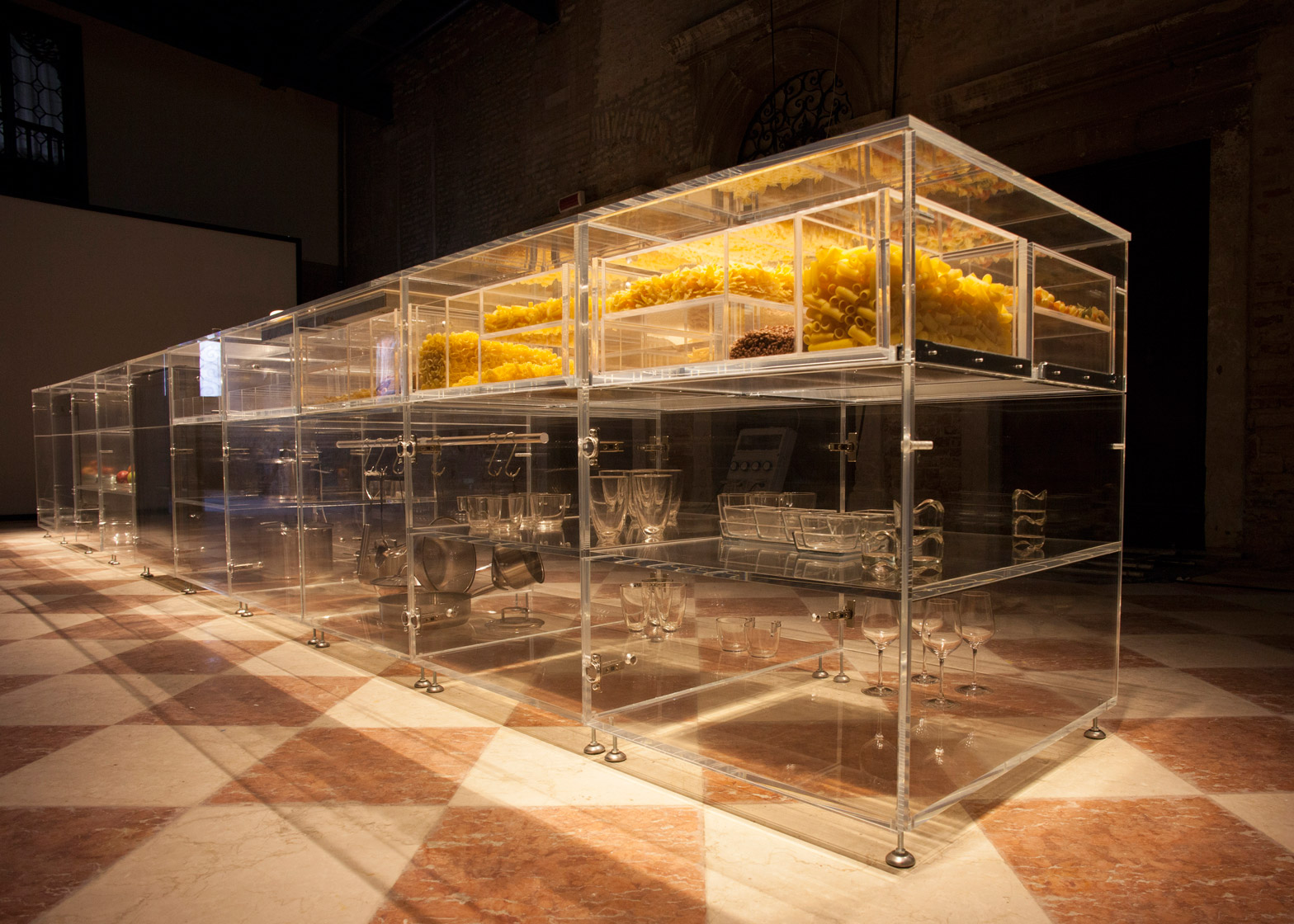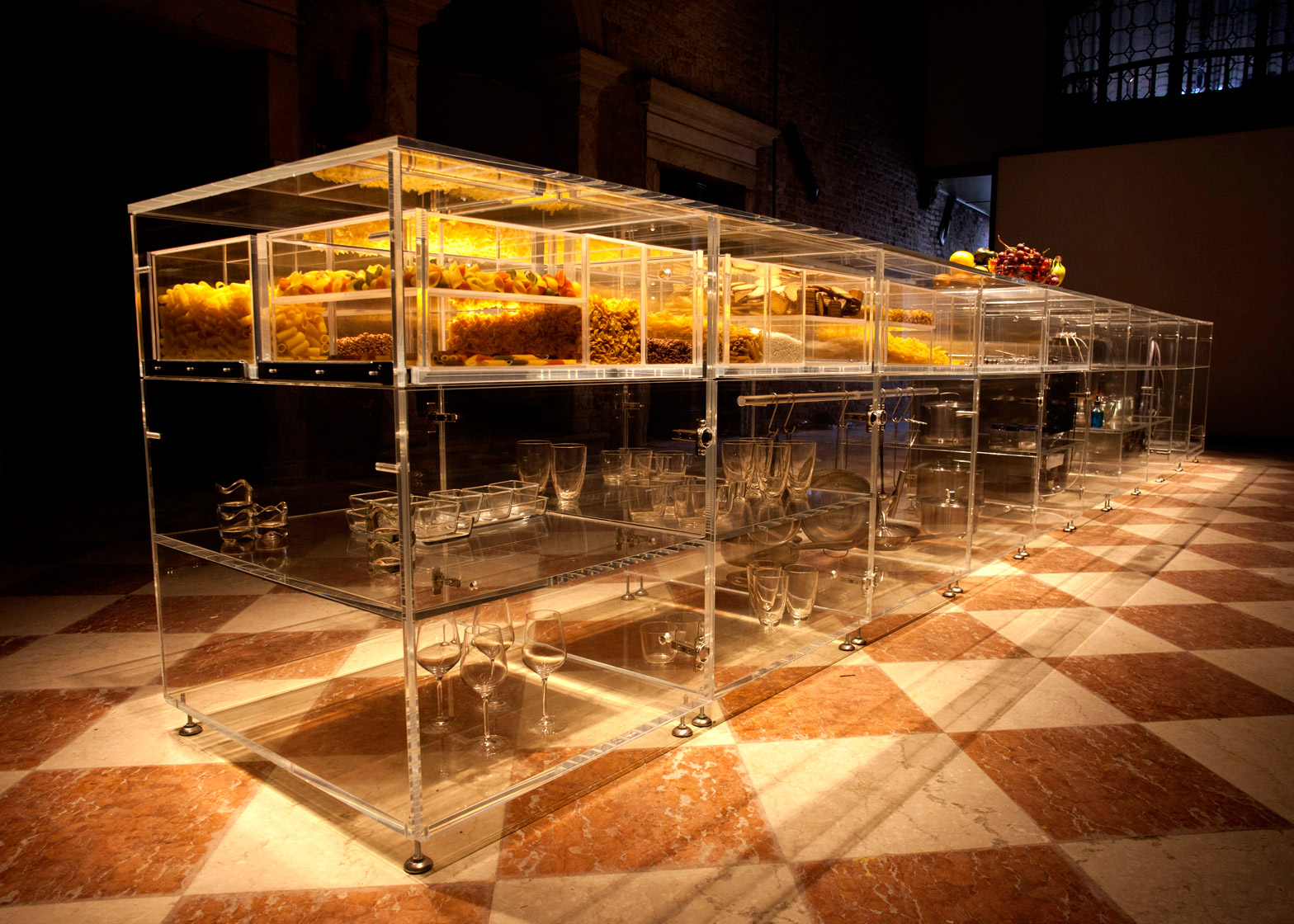Venice Architecture Biennale 2016: Dutch office MVRDV has designed a completely see-through glass kitchen that aims to inspire a "more healthy, if not sexy" approach to food (+ slideshow).
Making its debut at the Venice Architecture Biennale, the Infinity Kitchen has been proposed as a way of improving the cooking process by drawing greater attention to food choice, preparation and waste.
Each of the units and shelves is transparent, as well as the tap, sink area and worktops.
"If we imagine everything is transparent, clear and clean, doesn't it mean that the only thing that is colourful and visible is our food?" said the firm's co-founder Winy Maas.
"Doesn't it then imply that we are encouraged to love the food, in that way, and that maybe it even becomes more healthy, if not sexy?"
MVRDV hopes that the transparent elements will expose all aspects of the kitchen's function and processes, highlighting people's food choices as well as less attractive aspects like waste storage and disposal.
"The Infinity Kitchen wants to make better cuisine, better food preparation practices and it wants to raise awareness for the one room that we all rely so heavily on, and the processes that go on inside of it," said MVRDV.
"How much food do we have hidden away? How much waste is really being created? Is the kitchen really as clean as we like to think it is? But [the Infinity Kitchen] also wants to do one main thing: celebrate food and cooking."
The Rotterdam-based firm also explored transparency for an architectural project involving glass bricks, which were created using a pioneering technique. These replaced the traditional brick exterior of a former townhouse in Amsterdam that was converted to a Chanel boutique.
"I see this as part of a wider dream, this kitchen," said Maas. "It is part of an environment, if not a city, that is transparent and therefore accessible."
"Imagine if not only our kitchens were transparent but the walls through to the neighbour and the next neighbour even," he added. "This would create infinite perspectives in our cities. It would make within our claustrophobic environments possibly a view, into the direction of the mountains or the sea."
Other high-profile names that have turned their hand to kitchen design include Jasper Morrison, who created a modular system for Schiffini, and Tom Dixon, who designed a set of four sculptural kitchens as part of a Caesarstone installation.
The Infinity Kitchen made its debut at the Venice Architecture Biennale, as part of the Kitchen Home Project – which explores the future of the domestic environment – and will remain on display until 30 September 2016 in Università IUAV di Venezia Ca'tron.
Photography by MVRDV unless stated otherwise.

